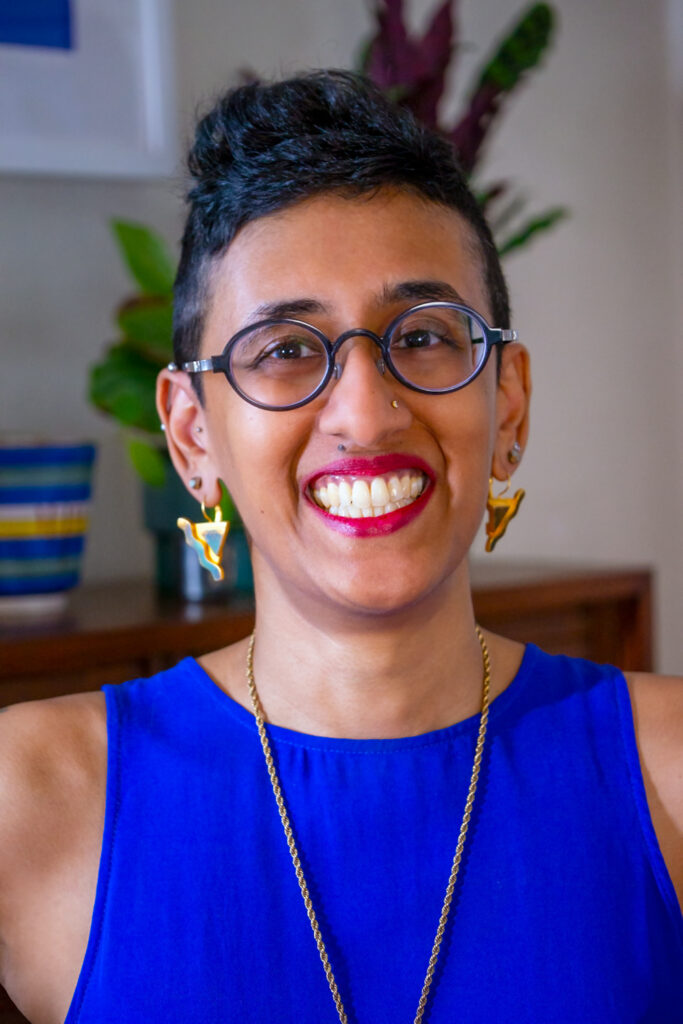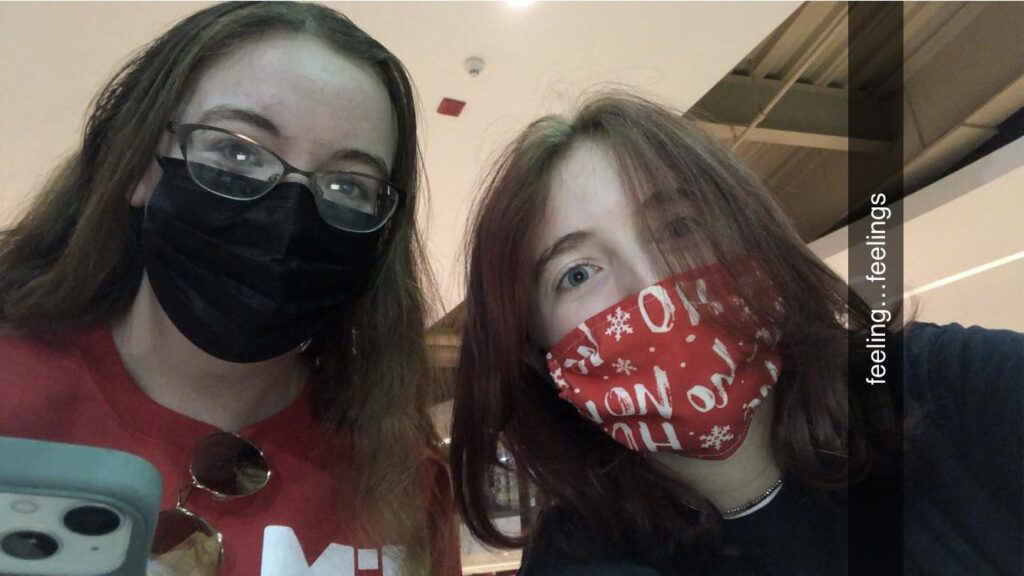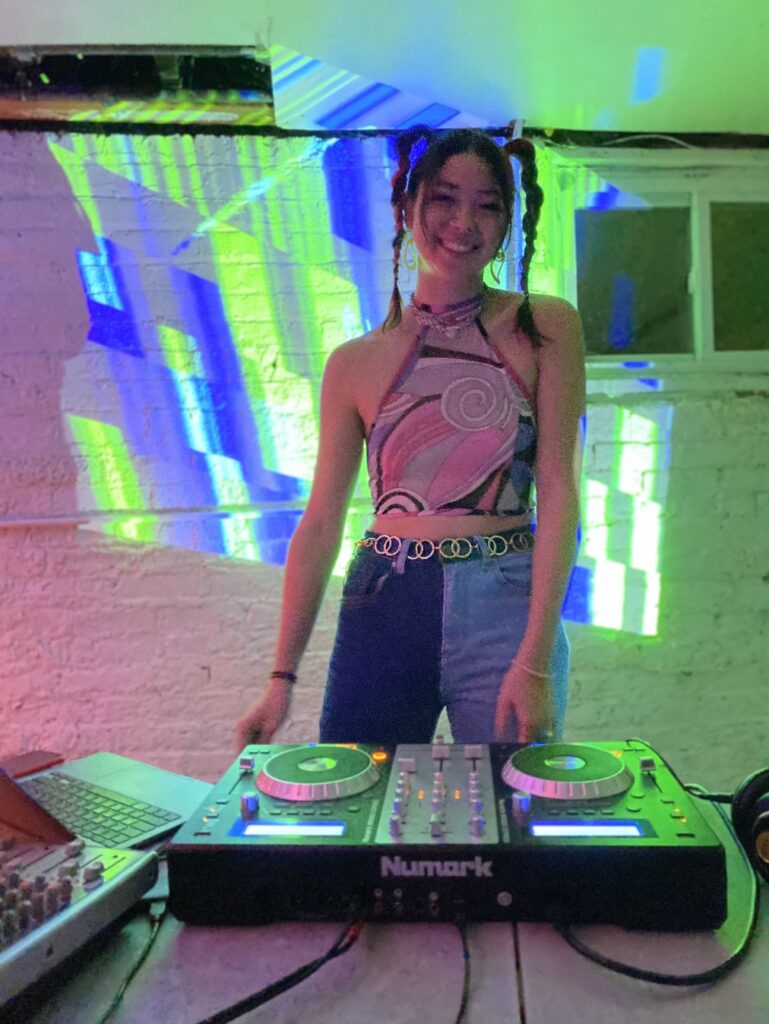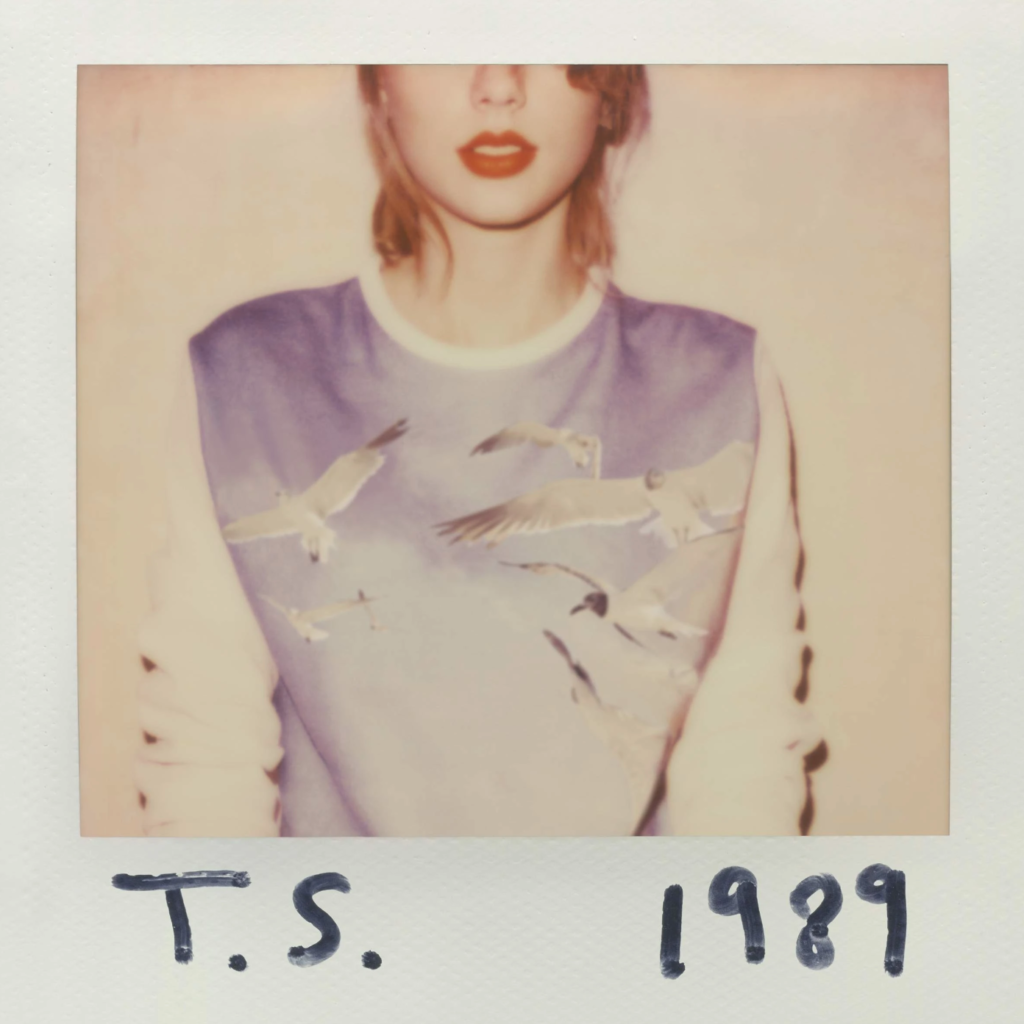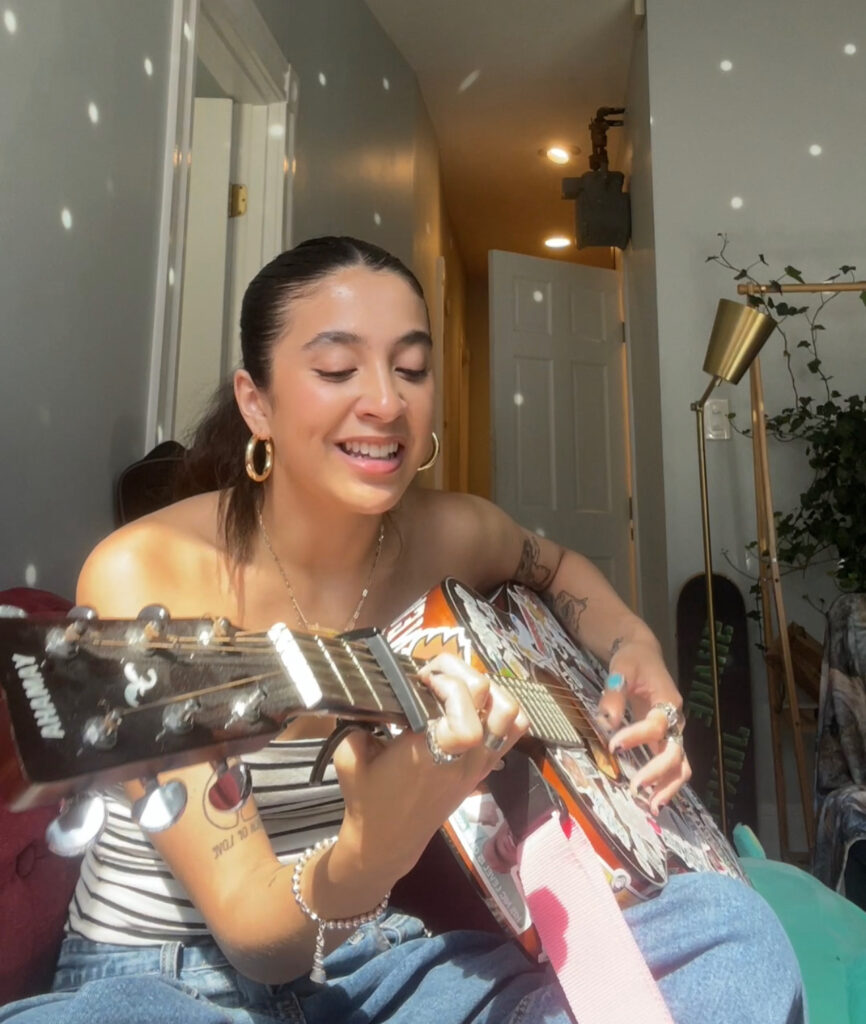
Raquel Beatriz Pidal (She/They) is an assistant professor of publishing in the Writing, Literature, and Publishing department at Emerson College. Pidal has been a professor at Emerson since 2018, taking on a full-time role in the fall of 2023. Their career in publishing and literature has taken on many forms in the last two decades, from distributing, designing, and ghostwriting all the way to editorial directing, small- and large-press publishing, and writing coaching.
In addition to Pidal’s accolades and credentials, they are an avid journaler! I sat down with Pidal for an insightful conversation on how journaling has influenced her professional and personal lives, all starting with a diary at 8 years old.
Pidal: I started keeping a diary of sorts when I was very small, and I’ve probably been keeping some form of journal or diary ever since then. I’m not super consistent with it. There have definitely been years where I haven’t done very much journaling, and then there are other times where I do it every day. It’s more about how it helps me and serves me as opposed to having to keep a routine.
Q: Have you kept all your journals since you were 8 years old?
Pidal: I pretty much keep them all. I don’t necessarily reread them, but I have gone back and looked at some of them sometimes, especially if I’m like, “What was going on at this point in my life?”

Q: Have you noticed a pattern in when you tend to journal more, or if you change the way that you journal throughout different stages of your life?
Pidal: A lot of times, I have turned to journaling if I’m having problems. It’s a good place to vent, put problems down, brainstorm solutions, and figure out what I’m thinking. For example, if I’m having a challenge, or if I’m trying to figure out what my feelings are about something. I also use it when I’m trying to make a decision. It’s very helpful for pros and cons lists. I certainly use it for many other things, but those seem to be times when I really use it and get very prodigious with it in terms of everyday journaling and working through that stuff.
Q: what’s your favorite thing about journaling? What’s your least favorite?
Pidal: My favorite thing about it is that it’s a good way to know what you’re thinking. It’s a good way to have a conversation with yourself. A lot of times I’ve not realized I’ve had a feeling or a thought until I’ve written it down, and it’s been really helpful in that way.
Maybe my least favorite thing about it is having a really fancy notebook and then feeling anxious about what I’m going to put in it. Am I going to use it for writing about stuff and then it’s going to get messy, or am I going to keep it for something special? The feeling of having a pristine notebook and what you’re going to put in it seems very silly and trite, but I think people understand that.

(He stole my papers.)
Q: How has journaling influenced your writing?
Pidal: I use journaling a lot when I’m writing, and it helps me figure out my ideas. I use it for drafting pre-writing, and figuring out what it is I want to say. I’m an editor by trade, so I’m not a big fan of the blank page and the draft. That’s my least favorite part, which is funny because I know a lot of writers, and their least favorite part is revision, but that’s my favorite part.
I like to revise, and it’s hard for me to get stuff down on the page, so a lot of times, I use specific writing notebooks or journals to keep track of my ideas, or actually just write about the writing process, which seems very meta, but can be really helpful. By working stuff out in advance, it makes it easier when I sit down to do the drafting.
Especially for non-fiction projects–I’m working on one right now–the act of just keeping track of ideas, not solely trusting my brain to keep track of them but putting them into a notebook when I have the ideas, is really key. Right now I’m trying to determine what kind of content my book is going to have and how I’m going to structure it. I can’t know that until I figure out some ideas, and I need a place to put them where I’m allowed to be really messy and figure out what it is I want to say, and that’s what the journal is helpful for. If feel like it feels too official to sit down and start typing, I’m allowed to just kind of meander when I’m in a journal; I can just poke around and explore and have that conversation with myself.
Q: What advice would you give to people who are just starting to get into journaling, whether it be to push their creative endeavors or just to manage their day-to-day lives?
Pidal: I would say people shouldn’t feel daunted or afraid or worried that they’re doing it wrong. It’s really for you; you can use your journal in whatever way you want. There are lots of books of prompts out there that can be really helpful. So, if people are like, “I really want to start journaling, but I don’t really know what to write about, I have nothing to say,” there can be really good books out there that help people with big, open-ended questions.
Also, a journal can just be a book of lists: “Here are five things I saw today that are really interesting,” or it can be a place where you keep track of stuff you want to do. There are so many different ways to use a journal. So I think for people who are just starting out, there are no rules. It’s really up to you. And I have all kinds of notebooks for all kinds of stuff. And if it feels daunting to call it a journal, just call it a notebook. It’s just your “notebook of stuff,” and that can be helpful.

Brenna Sheets is a graduate student in Emerson College’s Writing and Publishing M.A. program. She is also a teacher, currently specializing in middle school history. Her hobbies include going on long walks, reading and writing, and watching bad television.

















